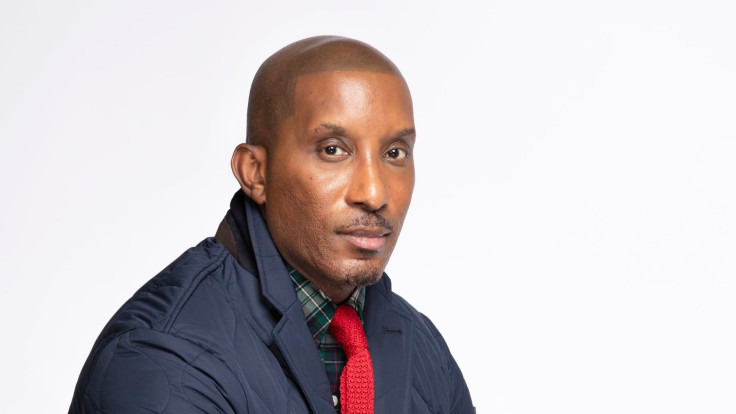The High Cost of Imposter Syndrome in the Workplace: A Conversation with Entrepreneur Dr. Dharius Daniels
Impostor syndrome is a common affliction. The feeling of being a fake, someone not qualified to be in their position, is very present among high-achieving professionals. For example, a study by the advisory firm KPMG found that 75% of female executives across different industries have dealt with imposter syndrome at some point during their careers.
A different study by the market research technology firm InnovateMR found that 65% of professionals suffer from imposter syndrome, disproportionately affecting women. And while it seems like the syndrome is finally getting some light on it, it's not enough to make the problem disappear.

Dr. Dharius Daniels is one of the people who are very vocal about imposter syndrome and the damage it wrecks on people and their lives. As an entrepreneur in the knowledge space, Dr. Daniels has worked with countless people helping them acquire the skills to level up in business or break through barriers and limiting beliefs. The imposter syndrome is one of those limiting beliefs.
"Imposter Syndrome prevents you from accurately assessing your ability," Dr. Daniels explains. "Those who suffer with it are suffering with thoughts that are not aligned with the truth, thoughts like I'm not good enough, I don't know enough, I don't have enough, I'll never be enough, I shouldn't be here."
People with imposter syndrome can have a range of beliefs and opinions that explain their success in all ways except as the result of their competence. Some will believe they're not competent and that their success was due to some external factors. Others will turn to obsessively looking over every single detail in their work, with the possible outcome being unproductive perfectionism.
It's also possible that a person suffering from imposter syndrome might become a people-pleaser. Some can seek external validation so much that they become perceived as needy.
Dealing with the fear of being called out as fraud can also take myriad forms. Apart from the few productive ways one can cope with imposter syndrome, a person suffering from it can end up dissatisfied with their job, burned out, or hesitant to advance in the workplace. Dr. Daniels calls it a limiting belief because imposter syndrome will prevent people from thriving.
As with all workplace problems, imposter syndrome can pour over people's private lives. They might not feel like imposters in their relationships, but the constant stress and fretting over being discovered will also strain their personal life.
Having worked with many people suffering from it, Dr. Daniels has developed a three-step protocol for dealing with imposter syndrome. It's not a quick solution. It requires work and constant vigilance. In the end, however, it just might help people get out of their own way and advance in life.
First, it's essential to address false beliefs. "You don't overcome impostor syndrome by attempting to overcome impostor syndrome. You do it by arresting the lies creating imposter syndrome," explains Dr. Daniels. "I'm talking about thoughts your mind feeds you that aren't true. If you continue to meditate on, ruminate on, and reinforce those thoughts, you will never be able to address the imposter syndrome."
The trick, then, is in not ruminating and reinforcing those thoughts. Easier said than done for some people, but with a bit of practice correcting oneself can become almost a habit, second nature. It takes some self-awareness to catch oneself repeating those bad thoughts, but that's also something people can work on and improve with practice.
The second step in Dr. Daniels's playbook is to feed the truth.
"The truth is, there's something in your track record or your previous performance that propelled you to this place, this role, this promotion, this whatever that's creating this sense of imposter syndrome," he explains. "So when I say feed the truth, I'm simply talking about reframing the lies in your internal conversations with yourself."
Those internal monologues people have can be used to fight against imposter syndrome. Instead of putting themselves down, people can use these monologues to lift themselves
The final step would be to shrink the imposter syndrome by accepting it for what it is and powering through it. "It's possible to have impostor syndrome and not let it have you," Dr. Daniels explains.
"Sometimes we gotta do it anyway. The feeling of fear may be there, and self-doubt may be there, but we have to do it anyway. This is courage." And we all need more of it, whether we deal with imposter syndrome or not.





















